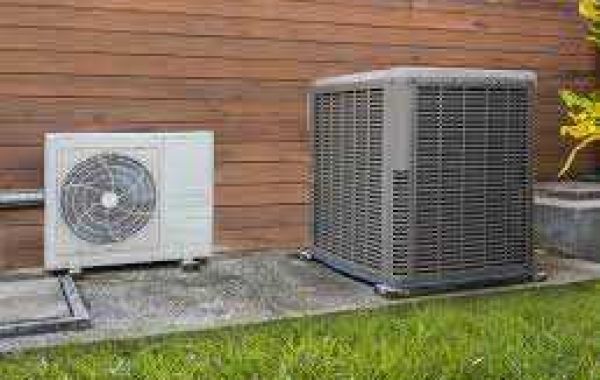At Air and Heat Solutions!, we understand the frustration and discomfort that can arise when your air conditioner malfunctions. Air conditioners are essential for maintaining a comfortable indoor environment, especially during scorching summers. However, like any complex machinery, air conditioners can encounter issues from time to time. In this article, we'll delve into the most frequent air conditioner problems and provide you with comprehensive, step-by-step troubleshooting tips to help you get your cooling system back up and running efficiently.
1. Air Conditioner Not Cooling Properly
One of the most common issues homeowners face is an air conditioner that doesn't cool effectively. There are several potential causes for this problem, including:
Dirty Air Filters:
Clogged and dirty air filters can significantly impact your air conditioner's performance. When filters become obstructed, they restrict airflow, making it challenging for your system to cool your home properly. Regularly inspect and replace filters to ensure optimal cooling efficiency.
Refrigerant Leak:
Refrigerant is the lifeblood of your air conditioning system, responsible for absorbing heat from your indoor air. A refrigerant leak can lead to decreased cooling capacity. If you suspect a leak, it's crucial to contact a professional HVAC technician to fix the issue and recharge the refrigerant.
Compressor Issues:
The compressor is another critical component of your AC system. It's responsible for compressing the refrigerant, which allows for the transfer of heat. A faulty compressor can result in inadequate cooling.
2. Air Conditioner Not Turning On
If your air conditioner fails to turn on, it can be frustrating and worrisome. Several factors could contribute to this problem:
Thermostat Malfunction:
The thermostat acts as the control center for your air conditioner. A faulty thermostat can prevent the system from receiving the correct instructions to turn on. Ensure your thermostat is set correctly, and consider replacing it if necessary.
Power Issues:
Check for tripped circuit breakers or blown fuses in your electrical panel. Sometimes, a power surge or electrical issue can disrupt the AC's functioning.
Wiring Problems:
Faulty or damaged wiring can prevent the flow of electricity to your air conditioner. If you suspect wiring issues, it's best to contact a professional technician to handle the repairs safely.
3. Unusual Noises Coming from the AC
Strange noises coming from your air conditioner can be indicative of underlying problems. Some common noises and their potential causes include:
Rattling or Clanking:
Loose components, such as fan blades or screws, can create rattling or clanking noises. Regular maintenance can help identify and fix these issues before they escalate.
Squealing or Screeching:
High-pitched sounds often indicate problems with belts or bearings. Lubricating moving parts and replacing worn-out belts can help resolve these noise issues.
4. Air Conditioner Constantly Running
An air conditioner that runs continuously can lead to higher energy bills and potential wear and tear. Address this problem by checking the following:
Incorrect Thermostat Settings:
Ensure that your thermostat is set to "Auto" instead of "On." The "Auto" setting allows the air conditioner to cycle on and off as needed, while the "On" setting keeps it running constantly.
Inadequate Insulation:
Poor insulation in your home can lead to heat infiltration, causing your air conditioner to work overtime. Consider upgrading your insulation to improve energy efficiency.
5. Water Leaking from the Air Conditioner
Water leakage around your air conditioner can be a sign of a serious issue. Common causes of this problem include:
Clogged Condensate Drain:
Over time, the condensate drain can become clogged with debris, preventing proper drainage. Regularly inspect and clean the drain to prevent water leakage.
Frozen Evaporator Coil:
A dirty air filter or low refrigerant levels can cause the evaporator coil to freeze. When the ice melts, it can lead to water leakage. Address this issue promptly to avoid further damage.
6. Foul Odors from the Air Conditioner
Unpleasant smells coming from your air conditioner can make your living space uncomfortable. Some potential causes of foul odors include:
Mold or Mildew:
Moisture buildup in the air conditioning system can create a breeding ground for mold and mildew. Regular maintenance and cleaning can help prevent these issues.
Dirty Air Filters:
Dirty filters can trap odors and circulate them throughout your home. Regularly replace air filters to maintain indoor air quality.
Conclusion
Dealing with air conditioner problems can be daunting, but armed with the troubleshooting tips mentioned above, you can tackle most issues effectively. Remember, regular maintenance and prompt attention to problems can extend your air conditioner's lifespan and keep it running efficiently.







